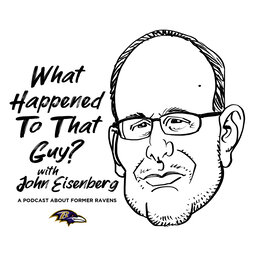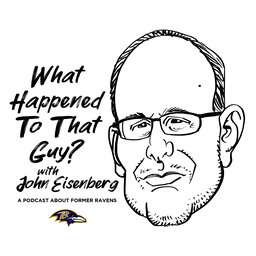What Happened to That Guy? Lional Dalton
The former Ravens defensive tackle and Super Bowl champion talks about his battle with kidney failure and search for a transplant.
In 1 playlist(s)
What Happened To That Guy
It's a deep dive into the challenging adjustment that players face when the bright lights of the NFL…Social links
Follow podcast
Recent clips

What Happened to That Guy? Greg Montgomery (Part 1)
37:32

What Happened to That Guy? Adalius Thomas
22:43

What Happened to That Guy? Kelly Gregg
23:23
 What Happened To That Guy
What Happened To That Guy